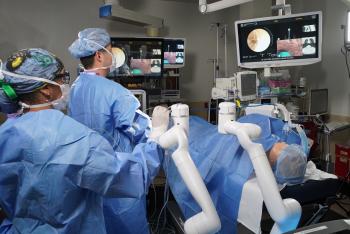Atlantic Medical Imaging (AMI), Inspira Health and Regional Diagnostic Imaging (RDI) are proud to...
Read More
Clinical trials are essential for developing new medical treatments and ensuring they are safe and effective for public use. They depend on patient participation to help test new medications and treatments.
However, not everyone has equal access to participate in these trials, which increases health care inequalities and slows down medical progress.
“For historically all and non-English-speaking communities, this limited participation and access can mean fewer effective treatment options due to underrepresentation in research studies,” said Inspira Health’s Assistant Vice President for Nursing Excellence and Clinical Research, Sami Abate, Ph.D., M.S.H.S., M.S.N., R.N., C.C.R.N., C.N.M.L. Several factors contribute to a lingering distrust in the health care system and clinical trials specifically, including historic mistreatment of minority participants. However, a lack of participation can lead to a mismatch in the patient populations in which new treatments are studied and the populations in which they are likely to be the most needed.
Learn more about why accessibility in clinical trials matters and how you can participate to help improve community health outcomes.
At its core, a clinical trial is a research study designed to test the safety and efficacy of a new medication or medical device and further the development of medical treatments. There are two main types of clinical trials: investigational studies and observational studies.
In an investigational study, patients test new treatments—such as drugs or medical devices—to determine their effects on human health outcomes. In an observational study, researchers watch how a treatment or lifestyle change affects a group of people with a certain condition.
“It’s important to know that clinical studies are safe,” explained Abate. “By the time these medications and treatments reach this stage of development, they have completed their pre-clinical phase and been approved for study by the U.S. Food and Drug Administration (FDA).”
Making clinical trials available to everyone, regardless of background or socioeconomic status, has major community health benefits.
“Accessible trials lead to better health outcomes,” said Inspira Health’s Clinical Trial Manager, Cathy Vasquez, R.N., B.S.N. “When people from different backgrounds join in these studies, the information gathered is richer and more representative of the entire population.” This diversity in data helps ensure that the clinical trial results are useful to more people, potentially minimizing health disparities between different demographic groups.
This diversity in research data also promotes a more effective health care system. “Historically, some groups have been underrepresented in clinical trials, leading to less effective solutions for these populations,” said Abate. “By making trials more accessible and increasing participation from patients of all backgrounds, we can see research results that are more reliable and effective for everyone.”
Accessibility in clinical trials helps build trust in medical research within underrepresented communities. “When people see that these studies include diverse groups and address their specific needs, like language barriers, they are more likely to trust and join these studies,” said Abate. “This trust is crucial for the long-term success of public health initiatives and for encouraging ongoing participation in future research.”
Participating in clinical trials has many benefits for patients. It provides access to new treatments before they are widely available. It offers the chance to contribute to medical research that potentially advances treatment options and improves health outcomes for many others. Participants also receive more focused, individualized time with their doctors, a dedicated research nurse, and other specialists.
"Enhancing the accessibility of clinical trials is not just about improving research—it's about breaking down barriers to health care," said Abate. "By improving access to these trials, we pave the way for a healthier, more inclusive future."
Learn more about the importance of clinical trials and find out how you can participate in studies in South Jersey here.

Atlantic Medical Imaging (AMI), Inspira Health and Regional Diagnostic Imaging (RDI) are proud to...
Read More
If you have had lymph node surgery, especially as a treatment for breast cancer, you may be at risk...
Read More
Lung cancer is the leading cause of cancer related deaths worldwide and is often discovered later...
Read More